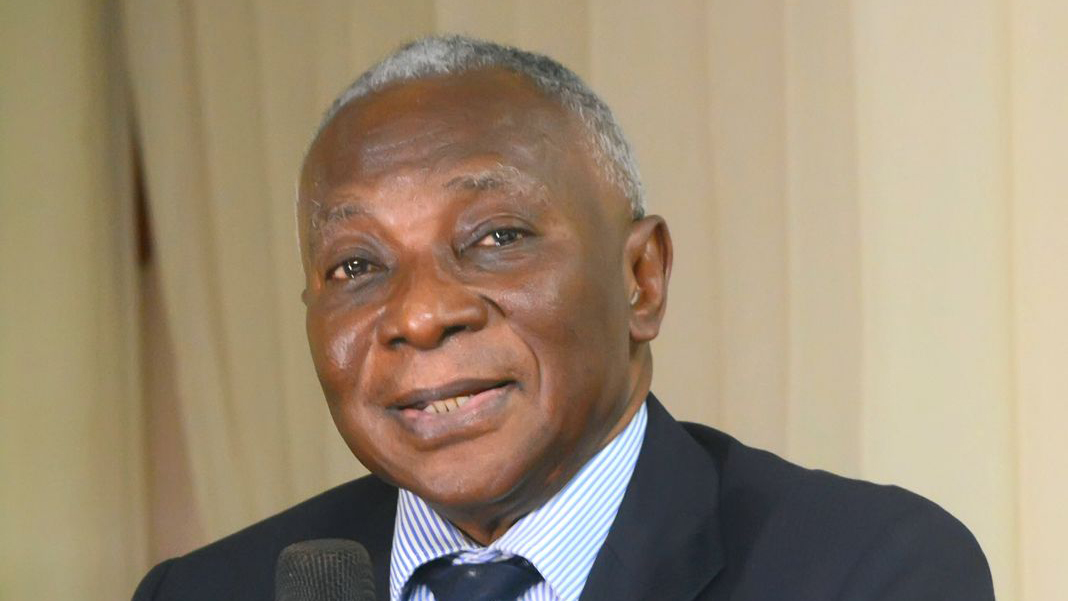 As a leader who is involved with shaping the future of young people, circumstances have preoccupied me with trying to unravel the question of leadership recruitment lately. In my social interactions, the question was recurrent. Topical issues in our country stare us in this direction. I heard about a banking chief who employs two of his baby mamas and pays them humongous amount of money as monthly take home. Their only assignment is to be at the service and pleasure of the banking chief.
As a leader who is involved with shaping the future of young people, circumstances have preoccupied me with trying to unravel the question of leadership recruitment lately. In my social interactions, the question was recurrent. Topical issues in our country stare us in this direction. I heard about a banking chief who employs two of his baby mamas and pays them humongous amount of money as monthly take home. Their only assignment is to be at the service and pleasure of the banking chief.
Those who work hard to earn their salary in the same institution question the morality of such behaviour. It is still an unfolding drama, a developing story. I also heard about people in high places who beef colleagues who are women because such women refuse their sexual advances.
Leaders should be careful what they do in office. This is because the office is a trust Nigerians reposed in them. Their actions and inactions can either build or betray the trust. The nature of social relation is such that young people in particular learn and model behaviour from such action and inaction.
They see their leaders as their role model. They see political leaders as their mentor because of the trust. They want to be close to the leaders. They want to follow them. They boisterously throng around them when leaders are home for a visit. They, there and then, display children’s instinctive eagerness and excitement. Therefore, they unconsciously learn and imbibe the leader’s mannerism.
They want the leader’s ideas to be their ideas, his characteristics and peculiar traits to be theirs. Such represent the vulnerability of young people. They believe one day they can be where the leader is today.
Scholars and researchers believe there is a network of brain neurons that facilitates imitation of other people’s behaviour. They call them mirror neurons. This brain network fires not only when we perform an action, but also when we observe someone else’s action. This ‘mirroring’ allows us to understand others and learn through imitation, which is a cornerstone of social interaction. This is how the process of social learning is set off. Social learning becomes powerful in leadership recruitment.
The theory states that we learn from others by considering four factors. The first is attention where we observe the behaviour. This is why a young man will want to come close to a man of influence. The purpose is to observe him. If the outcome of the behaviour the man exudes is positive, the young man may likely adopt such behaviour.
The second step is retention where he has to remember what he observed for future use. In a bid to remember, he tells his friends what he observed. He keeps reinforcing the same message in discussions with his cronies so he would not forget. The third step is reproduction where he attempts to reproduce the behaviour.
He tries to speak like his mentor or behave the way the mentor behaves. The last step is motivation, which ensures he has good reason for adopting such behaviour. What should be underlined here, however, is outcome. The outcome of the behaviour to be adopted must be positive. Political leaders therefore must ensure the behaviour that emanates from them have positive social outcome. Through positive outcomes, effective leaders shape the culture.
The problem of leadership recruitment in Nigeria is the fact that we have a crop of leaders whose behaviour has not produced a positive culture for young people who are the potential leaders. In their association in party politics, politicians initiate young people into their cult to protect the interest and vested behaviour of the political class.
The initiation thus becomes a way of life as every young politician passes through such socialisation. Before they give you political office, you will appear before a shrine to swear, as a way of sealing an understanding you have entered into with the powers that be. It is also a way to tell the young politician, “We have our way of regulating those who flout our code of behaviour, therefore beware.” These potential leaders grow to understand the concept of leadership, power and social relation in a certain way, which influence how they eventually behave.
Copious instances to remember from our history, but one will serve our purpose here. Chief Bode Thomas was not a minnow in the pre-independence politics in Nigeria. He had lots of qualities a young potential leader could observe and strive to emulate. He was astute, charismatic, workaholic, thoughtful and forward looking. These qualities opened doors for him at a very young age.
For instance, along with Chief Remi Fani-Kayode, and Chief FRA Williams, he opened the first law firm in Jankara Street in Lagos. He became a member of the Regional House of Assembly in 1951. He became a member of the House of Representatives. History recalled that Thomas was a charismatic speaker and a lover of facts. He was a firebrand nationalist. He would not only speak, he also acted. He had to resign from the Council of Ministers over prolongation of colonialism.
On the note of his resignation, MacPherson constitution collapsed immediately. This means Thomas loves social change when society needs to change for the better. The inner system (belief, attitude, and values) of any young observer will agree with his attributes.
These outcomes can become good reasons for such young observer to adopt his political philosophy as a way of life. However, Bode Thomas was a proud man, a domineering figure, and a derogator of tradition and culture. This is on the flip side. As the Divisional Council Chairman in 1953, he disrespected Alaafin of Oyo, Oba Adeniran Adeyemi II during his first council meeting with the traditional rulers. Making his way into the meeting venue, Alaafin refused to defer to him by not standing while other kings were on their feet.
Bode Thomas then shouted at the king, “Why are you sitting when I walked in, you don’t know how to show respect?” Alaafin felt insulted, he said, “Se emi lon gbomo baun?” (Is it me you are barking at like that?) “Ma gbo lo baun” (continue barking). Bode Thomas got home and started barking. He barked like a dog all night until he died early morning of November 23, 1953.
When it comes to leadership recruitment, the above implies that potential leaders may be drawn to emulate the behaviours and characteristics of political leaders they admire. This can be both positive and negative depending on the qualities and values of the political leaders being emulated. Effective leaders can inspire and motivate others to adopt positive behaviours and values, such as transparency, accountability, empathy and selfless service.
On the other hand, negative behaviours like authoritarianism, nepotism, tribalism, cronyism, corruption, pride, power-mongering, and discrimination can also be emulated if those are the characteristics exhibited by the political leaders being observed.
To promote positive leadership recruitment, therefore, it is essential for leaders to embody the values and behaviours people desire in a leader. Those in leadership positions should be exposed to training and development opportunities that focus on building strong leadership skills, which will in turn promote a culture of transparency, accountability, empathy and selfless service. Potential leaders will then have positive cultural values and beliefs to learn from and emulate.
Rev. Fr. Kehinde wrote from Ado-Ekiti.






